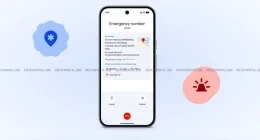Content piracy need no introduction. It has inflicted serious damage to the web, ever since the web opened up to public. And despite serious measures undertaken by internet and web companies globally, pirated content still finds its way to our devices.
In a first of its kind agreement however, brokered by the UK Government’s Intellectual Property Office (IPO) and backed by the entertainment industry, Google and Microsoft’s Bing will team up to stop surfacing illegal websites hosting pirated content, at the top bracket of search queries in the U.K.
Both the parties, Microsoft and Google have agreed to a new “code of conduct”. According to the code, both of them will bust websites in Britain who have repeatedly received copyright infringement notices. These websites will not be shown on the first page for common searches and hence will provide protection to user PCs. In a comment to The Telegraph, a Google executive said,
Google has been an active partner for many years in the fight against piracy online. We remain committed to tackling this issue and look forward to further partnership with right holders.
U.K. Intellectual Property Office (IPO) is a government department that deals with patents and copyright issues. The said department will supervise the actions taken by Google and Microsoft and will guide them throughout. The IPO office even has the power to amend the code if it finds faults in the voluntary deal. Moreover, after a few months of assessment and supervision, IPO will release influx further measures to tighten the web protection.
Jo Johnson, U.K. minister of state for universities, science, research, and innovation talked over the matter and said,
Consumers are increasingly heading online for music, films, e-books, and a wide variety of other content. It is essential that they are presented with links to legitimate websites and services, not provided with links to pirate sites.
The partnership aims to witness results within a time span of few months, most likely by June 1, 2017. Both Bing and Google allow copyright owners to make a request for the removal of a link. According to a Microsoft transparency report, Google pulled off 915 million links considering the requests from copyright holders in the past year. Bing on the other hand, withdrew 91 million links between January and June 2016.
The Tech Portal is published by Blue Box Media Private Limited. Our investors have no influence over our reporting. Read our full Ownership and Funding Disclosure →






